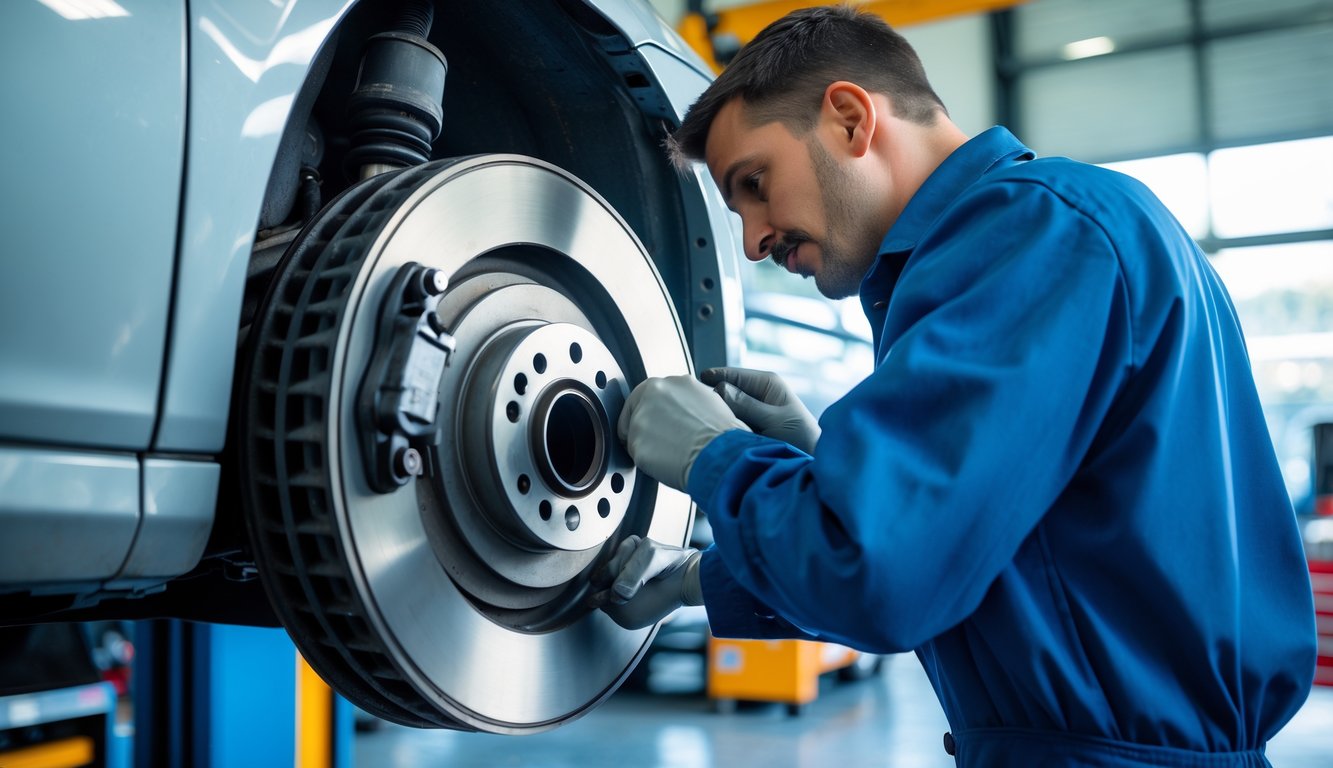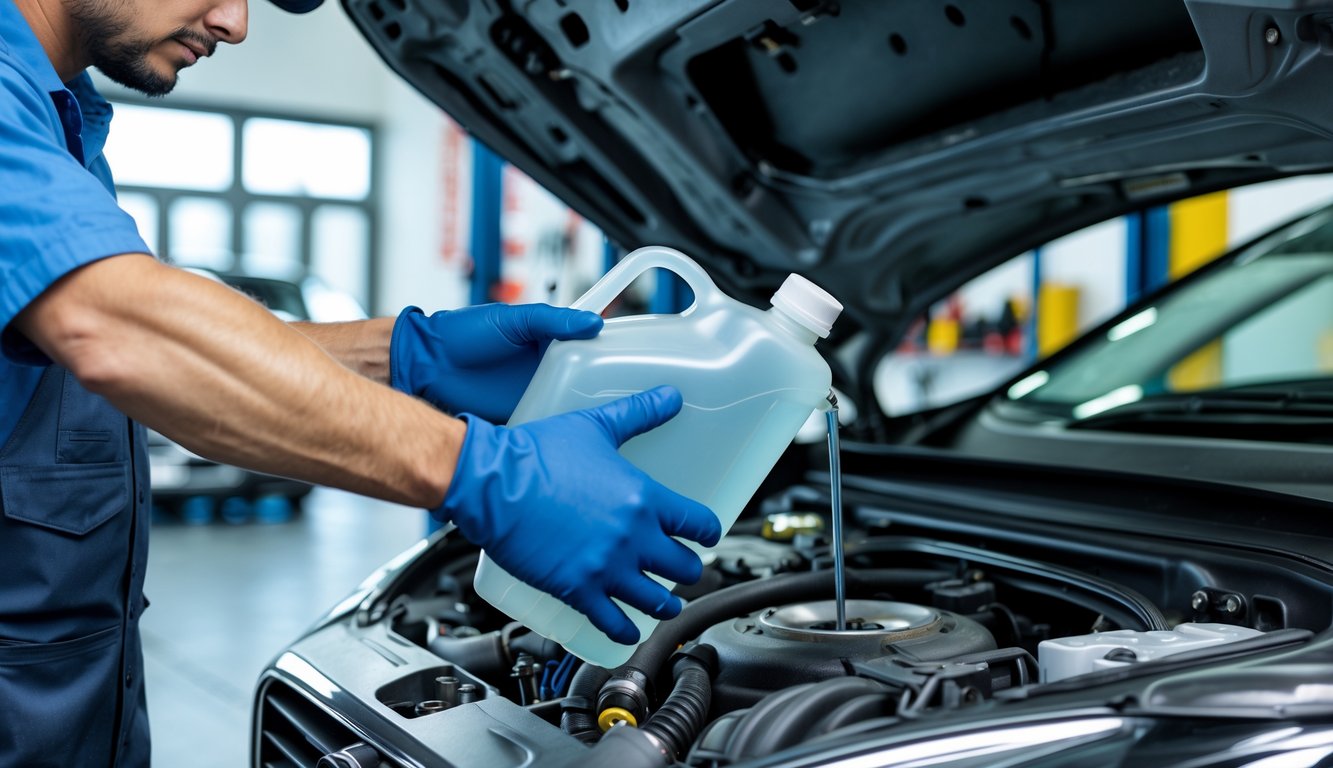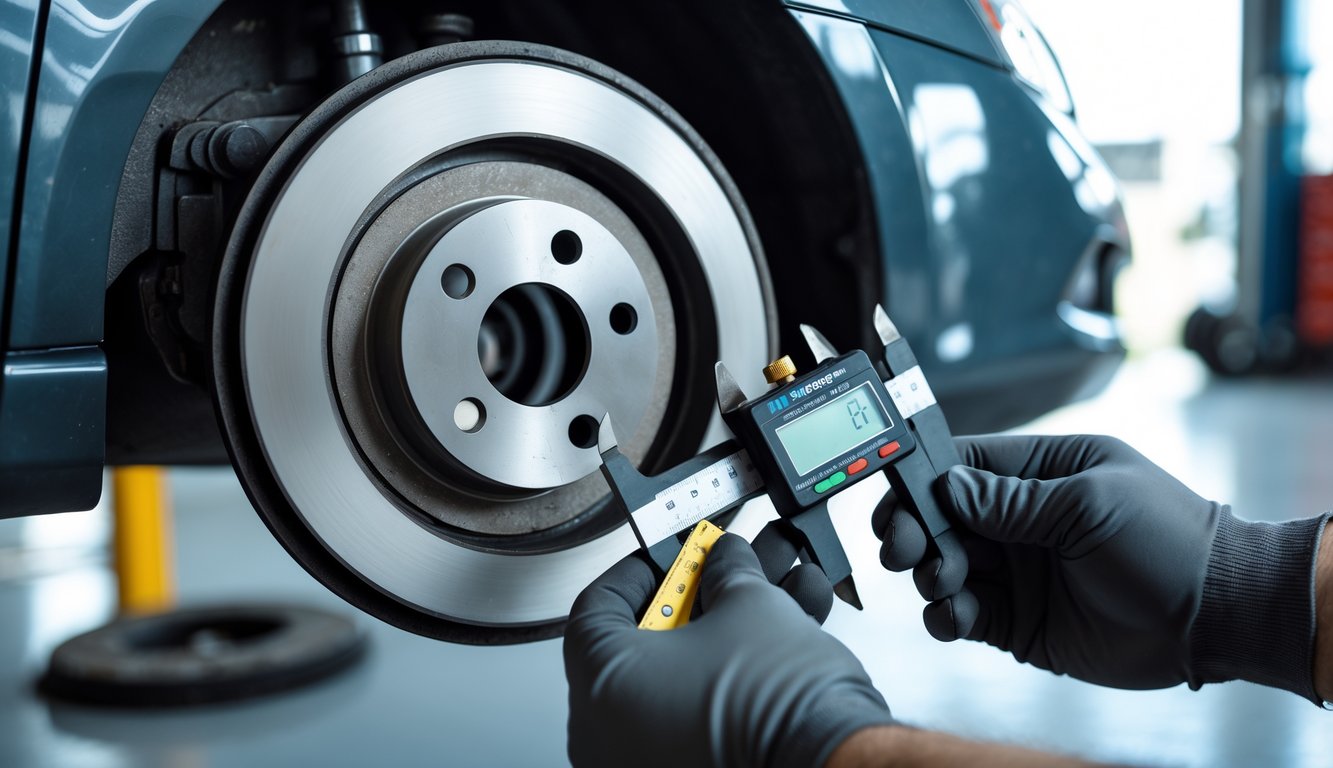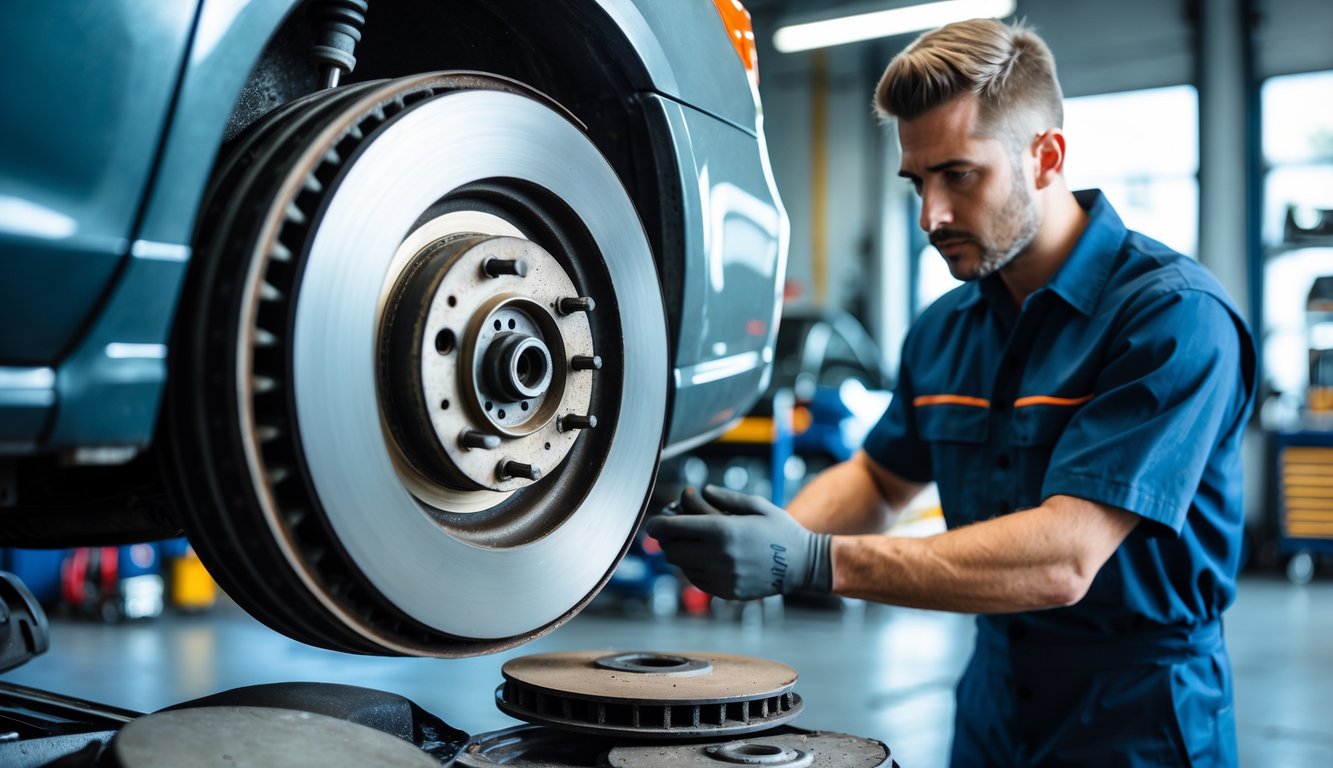
Brake Fluid: The Lifeblood Of Your System

I’ve seen way too many people act like brake fluid just magically stays clean and full forever. One day the lines look fine, next day someone’s panicking and searching “squishy brake pedal what do I do.” Hydraulic systems don’t forgive laziness.
Role Of Brake Fluid In Safe Stopping
Someone once said brakes work by “squeezing something.” I mean, sure, but that skips the madness under the hood. Brake fluid isn’t just filler. If there’s not enough, or if there’s even a little air, the pedal turns to mush. You push, nothing happens, and now you’re praying there’s no tree at the curb. Doesn’t matter if it’s a new car or a beat-up van.
It’s usually DOT 3 or 4 fluid (sometimes DOT 5 if you’re fancy), and every time you hit the pedal, it gets squished through the lines. I’ve seen what happens when it’s contaminated: pedal goes soft, weird noises, sometimes you lose brakes completely. Fresh, clear fluid means pressure goes right to the calipers and you actually stop. No shortcut. Ignore it, and every mechanic in town will tell you the whole system turns unreliable. Nobody brags about having the mushiest brakes.
Risks Of Low Or Contaminated Brake Fluid
Once, on a freezing morning, I topped off a customer’s reservoir and the fluid looked like old coffee. Brake fluid loves water and dirt, which kills its boiling point. Then it vaporizes, you get air, and suddenly your pedal drops to the floor. Who plans to stop in an extra twenty feet if a deer jumps out? Not me.
Corrosion is brutal. Dirty fluid just eats brake lines and calipers. I saw a Corolla with lines so rusted from ignored fluid it was almost totaled. Not just a little rust—contaminated fluid is how you get brake failure, and mechanics keep calling brake fluid the unsung safety hero. It’s way cheaper to flush it than replace lines or a master cylinder.
Some people think they’ll just “top up later.” But it keeps dropping for a reason—probably a leak, maybe a bad seal. All that topping off is just delaying the inevitable. Met a guy who mixed fluid types once. Turned it into syrup. Not good.
Spotting And Addressing Fluid Leaks
Heard someone blame a “random puddle” for months—turns out it was a brake fluid leak. Every top-off just bought a little more time. Leaks don’t fix themselves. They hide under the car or inside a wheel, just waiting to ruin your week.
Most leaks start tiny, then suddenly the pedal feels weird and the dashboard lights up. Half my friends ignore the warning lights, by the way. By the time you notice, the reservoir’s empty or the pedal’s nearly on the floor. Then air gets in. Stopping? Not guaranteed.
Some folks think checking the color is enough, but leaks don’t care. Look for oily spots near wheels, soft pedal, weird smells. Bleed the lines and swap the fluid after a leak—it’s the only way to get air and junk out. Wait too long, and you’re buying new ABS parts or calipers, all because you wanted to save a few bucks.
Worn Brake Pads And Their Hidden Dangers

Everyone thinks the squeal from my car is just a rock, but the math never adds up. Ignoring that first grind always feels cheaper than the hours I waste searching “brake pad replacement near me.” Nobody talks about the smell, the warped rotors, or how “just pads” turns into a day-long wallet crisis.
Signs Your Brake Pads Need Replacement
Last week, my neighbor—claims his uncle’s a brake expert—said if you hear a screech when stopping, it’s not your imagination. That’s the wear indicator. It’s built in to warn you. But what do most people do? Just keep driving. Every time.
Look at your pads. Less than a quarter-inch left? That’s basically a countdown. I read somewhere that anything thinner means you’re gambling. You can feel the pedal vibrate, and honestly, who needs a warning light when the whole car shudders? Classic move: uneven wear, always on the wheel you can’t see. Grooves on your rotor? That’s the universe saying, “You waited too long.”
Damage From Metal-On-Metal Contact
Go down to bare metal and things get ugly. My friend ignored a little squeal until his commute sounded like a blender full of nails. That’s metal-on-metal—pad’s gone, now it’s just steel grinding into the rotor. Nobody at the parts counter warns you: every stop after that just makes the damage worse. Rotors, calipers, even ABS sensors can get wrecked.
Firestone’s guides say it’s not just about money (though it’s a lot)—it’s longer stops, warped rotors, and a guarantee you’ll need more than just pads. Mechanics hate telling you, but new pads and rotors can easily run over $600. Calipers or sensors? More. All of it avoidable if I hadn’t ignored that first grinding noise. Funny how it only happens when the music’s off.
Burning Smells And Their Implications
So, here’s the thing—nothing derails a quick grocery run like that sharp, weird burning smell wafting up after highway driving. You know the one. Kind of like fried electronics, kind of like burnt toast, but somehow more ominous? Every time I Google “burning smell from brakes,” I get a wall of warnings about overheated pads, or sometimes the brakes binding because the pads are so worn they can’t get rid of heat. I don’t remember anyone at drivers ed mentioning this. Did I just not pay attention?
One time, I honestly thought maybe some neighbor was grilling nearby, but nope, that smell was all mine. Turns out, overheated pads or boiling brake fluid is the usual culprit. Firestone’s got a whole page on overheating brakes and how it leads to brake fade—so, basically, next time I really need to stop, I might just keep rolling. Heat stress warps rotors, trashes expensive parts, and leaves my car reeking like shame for days. Love that for me.
Consequences Of Delayed Brake System Repairs

Ever tried weaving through traffic with brakes you’ve “been meaning to fix since last fall”? I have. Regret is instant. Mechanics don’t just whine for fun; ignore those warning lights and faint grinding noises and suddenly you’re bleeding cash, and every press of the pedal feels like gambling with your life.
Brake Failure Scenarios
Why do people (me included, not proud) wait until the brake pedal basically kisses the floor before admitting it’s time? It’s not complicated—fluid leaks, pads worn to nubs, rotors warped like Pringles, and—poof—stopping power gone. The signs aren’t subtle. Longer stopping distances and weird pedal feel are hard to miss. There was this Fiesta, pedal sinking like a sad soufflé. Owner claimed “no time” for repairs. Master cylinder leaked, bill ballooned. If the brakes had totally quit? Towing, insurance, the whole circus.
I read somewhere (maybe IIHS?) that cars with failing brakes are three times likelier to rear-end someone. That’s not great. Letting pads grind into rotors means repairs can double, and on newer cars, rotors themselves can be $400+ each. That’s a lot of money just because you waited.
